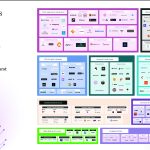
When Nexus International reported $400 million in annual revenue for 2024, most observers looked for a blueprint. Instead, they found a founder.
Gurhan Kiziloz, the self-financed entrepreneur behind Nexus and its flagship gaming platform Megaposta, has grown the company not through formalized systems but through direct control, rapid decision-making, and what amounts to executive improvisation. He is not a chairman, a strategist, or even a CEO in the traditional sense; he is the operating system.
“There are no timelines,” Kiziloz said in a recent interview. “If something makes sense, we go.” It’s a sentiment that distills a broader theme: a rejection of institutional friction in favor of speed, autonomy, and instinct.
The sociologist Max Weber defined three sources of authority: traditional, legal-rational, and charismatic. Most large firms lean heavily on the second, processes, policies, and accountability mechanisms designed to make institutions durable beyond the presence of any one individual. Kiziloz has instead concentrated authority in the founder role itself, a model dependent on energy, clarity, and personal drive.
It’s a philosophy that works, until it doesn’t.
Nexus has scaled rapidly, propelled by Brazil’s newly regulated digital gaming environment and Kiziloz’s ability to act quickly where others hesitated. The company secured its gaming license early, launched Megaposta before international competitors, and invested heavily in local media channels to capture share. But its pace is not underwritten by corporate infrastructure; it’s tied to one individual’s bandwidth.
The upside is obvious: decisiveness, cohesion, and full alignment. The risks are less visible, but equally real.
There are two levels of risk embedded in the Nexus model. First is operational fragility. As companies grow, so do their interdependencies. Customer service, licensing, compliance, marketing, engineering, all require cross-functional coordination. In traditional firms, these demands are addressed through layers of oversight. At Nexus, those layers are thin by design.
Second is the question of succession. If the system is the founder, the company’s long-term scalability becomes dependent on his ability to keep running it. Kiziloz is open about the tradeoff. “Not everyone is designed to take a ride in a rocketship,” he told us. The implication is that organizational stress is not a bug; it’s a feature. Those who can’t keep up, don’t.
It’s a philosophy that prioritizes clarity over consensus. But in increasingly regulated markets, particularly outside Brazil, clarity alone may not be enough.
The decision to bet on Brazil as the primary market now looks prescient. Revenue growth in the country’s digital gaming sector has nearly doubled post-legalization, and Nexus’s early licensing gave it a first-mover advantage. In this sense, Kiziloz’s instincts aligned with macroeconomic tailwinds, a key variable when evaluating founder-driven growth.
But as Nexus eyes its next milestone, $1.45 billion in revenue by end-2025, the model faces structural tests. How does a company scale from a centralized node without fragmenting? And more pressingly: how does one person keep pace with what is now a high-growth, international enterprise?
Kiziloz shows no signs of slowing down. “If it fails, I start again,” he said, underscoring his high tolerance for volatility. But resilience at the founder level doesn’t always translate to institutional resilience. Employees need predictability. Regulators demand accountability. Partners expect process.
These are not philosophical questions. They are practical ones.
Founders who resist systematization often cite speed as justification. Indeed, Kiziloz’s conviction allows Nexus to ship products, enter markets, and make strategic shifts faster than consensus-driven peers. But that same conviction can obscure blind spots, whether in hiring, compliance, or long-term planning.
As companies mature, personality-driven operating models tend to evolve or stall. Even leaders like Elon Musk, known for their intensity, ultimately codify their approach through teams and layers. The challenge for Kiziloz is not whether he can build fast; it’s whether the machine he’s building can run without him.
Nexus International may be the rare proof point that charisma, rather than process, can scale a business to $400 million in revenue. But as the company targets $1.45 billion within a year, the burden of proof will shift from vision to system.
Gurhan Kiziloz may not believe in decks, timelines, or institutional choreography. But institutions emerge not because founders slow down, but because companies speed up.
Whether Kiziloz adapts or doubles down may well define the next chapter, not just for Nexus, but for the founder-as-institution model itself.















